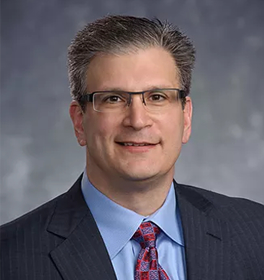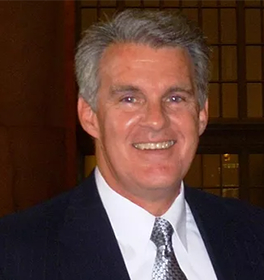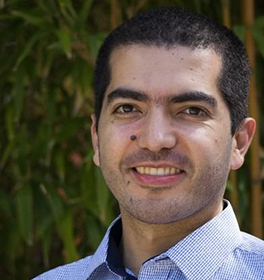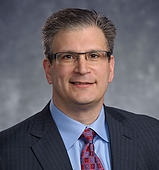Cortical or subdural electrodes are used in electrocorticography (ECoG) or intracranial electroencephalography (iEEG) surgeries to monitor, record and stimulate the surface of the brain for less than 30 days. Our Evo cortical electrode portfolio consists of various contact configurations of strip and grid electrodes. (Rx only)

Decreased Immunological Response - The Evo Electrode is over 7 times thinner than a silicone electrode. The flexibility and reduced volume should reduce pain and edema. 2
The Evo’s polyimide substrate has properties like increased flexibility, reduced volume, and decreased immunological response, which should reduce signal artifacts. 3
Single Tail Design - The single thin tail design allows the implanted electrode tail to be tunneled through one incision which should reduce infection risk and procedure time. 1,2
Reduced Cable Management - A disposable cable assembly is sent with each Evo Electrode as an electrode kit, removing the need to source the correct cables for each electrode being used in surgery. Also, hospital resources are freed from the management of sterilizing and storing individual electrode cable assemblies.
1. Worrell,G. et. al. December 2019. Commercial Scale Production of Thin-Film electrode arrays for Clinical Intracranial EEG. ((Abst. 1.154), 2019. American Epilepsy Society.
2. Bower R, et al. December 2017. Development of Polyimide electrodes for high-resolution intracranial EEG recordings. (Abst. 1.060) 2017. American Epilepsy Society.
3. Bower R, et al. December 2017. Multi-Resolution intracranial EEG rodent recording system. (Abst. 2.062) 2017. American Epilepsy Society.





In comparison to currently available technologies, our electrodes are manufactured with polyimide thin film. Our electrodes are designed to reduce trauma to the brain by allowing a less invasive implant due to the flexibility, thinness and reduced weight of the electrode.
Number of Contacts: 2 - 16
Contact Spacing: 10mm
Contact Size: 3mm
Electrode Contact Material: Platinum
Electrode Substrate Material: Polyimide
Thickness: 0.08mm
Weight: 0.05 grams
Tail Length: 12.70 inches
Disposable Cables: Proprietary cable assembly for the Evo electrode with a zero force connection box and standard DIN42802 touch-proof connectors compatible with standard headboxes.
See the Instructions for Use for additional information (e.g. Description, Indications for Use, Contraindications, Warnings, Adverse Events, etc.)


Mr. Rosa is an entrepreneur with three decades of experience in the medical device industry spanning a variety of technologies and products. In addition to CEO roles with early-stage medical device companies, Mr. Rosa’s background also includes senior roles with C.R. Bard Inc., Boston Scientific Inc., and St. Jude Medical, where his responsibilities included marketing, product development and business development. He has been named as an inventor on multiple medical device patents, serves on seven corporate boards, and has raised $200M in the capital markets. Mr. Rosa holds an MBA from Duquesne University and a BS in Commerce and Engineering from Drexel University.


Mr. McClurg has over 30 years of financial leadership experience with private and public companies. Prior to joining NeuroOne, Mr. McClurg was VP - Finance & Administration and Chief Financial Officer of Incisive Surgical, Inc., a privately-held medical device manufacturer, and Chief Financial Officer and Treasurer of Wavecrest Corporation, a privately-held manufacturer of electronic test instruments for the semiconductor industry. Mr. McClurg also served as Chief Financial Officer for several publicly-held companies, including Video Sentry Corporation, Insignia Systems, Inc., and Orthomet, Inc. Currently, he serves as a director for a privately held company. He began his career in public accounting with Ernst & Young, where he earned his CPA certificate. He holds a Bachelor of Business Administration degree in accounting from the University of Wisconsin – Eau Claire.


Mr. Volker has over 20 years of experience in the medtech industry including at Abbott, Cardiovascular Systems, Inc. (CSI), St. Jude Medical and in investment banking. At CSI, Mr. Volker held the role of Vice President & General Manager of International and had direct responsibility for international commercial expansion, including Sales, Training & Education, Marketing, Business Development and Program Management. Prior to CSI, Mr. Volker held executive leadership roles at St. Jude Medical where he led Corporate Development, Health Economics & Reimbursement and Strategic Market Research across all of St. Jude Medical's business units as well as held executive responsibilities for Human Resources for the Cardiovascular Division. He began his career in healthcare and technology investment banking where he gained expertise in M&A, strategic planning, growth equity investments and financings. Mr. Volker earned a Bachelor of Arts degree from St. John’s University and a Masters of Business Administration degree from the Wharton School at the University of Pennsylvania.


Prior to joining NeuroOne, Mertens was Sr. Vice President of R&D and Operations at Nuvaira, a privately held lung denervation company developing minimally invasive products for obstructive lung diseases. Before that, Mertens was a Senior Vice President of Research and Development for Boston Scientific, where he guided a wide range of technologies through product development for the cardiology, electrophysiology, and peripheral vascular markets.
Mertens began his medical device career working in engineering, quality control, and manufacturing roles at SciMed Life Sciences. Mertens holds a Bachelor of Science degree in Chemical Engineering from the University of Minnesota and a master’s degree in Business Administration from the University of St. Thomas.


Dr. Parag G. Patil is a neurosurgeon-engineer with 20 years’ experience serving patients and advancing innovative therapies to alleviate neurological disorders. After joining the faculty at the University of Michigan in 2005, he has served as an Associate Professor of Neurosurgery, Neurology, Anesthesiology, and Biomedical Engineering. He additionally serves as Associate Chair for Clinical and Translational Research and in leadership roles in diverse multi-disciplinary, multi-investigator research efforts and national societies. His academic goal is to utilize engineering and mathematical techniques, along with interdisciplinary collaboration, to improve neuroprosthetics and perform translational neuroscience research. His NIH and NSF-funded research focuses on electrophysiology, imaging, mathematical modeling, and the development of improved therapies for the treatment of paralysis, pain, and movement disorders using neural-interface devices.
Dr. Patil received a B.S. in electrical engineering from the Massachusetts Institute of Technology. After graduation, he was awarded a Marshall Scholarship to study Philosophy and Economics at Magdalen College, Oxford University in the UK. On returning to the U.S., Dr. Patil pursued combined medical and doctoral studies in biomedical engineering at Johns Hopkins University, followed by a neurosurgery residency at Duke University and a fellowship at the University of Toronto.


In excess of 15 years of executive sales, sales management, marketing, and project management experience with development stage companies. Prior to NeuroOne, Mr. Christianson held the positions of North American Sales Manager for Cortec Corporation, a manufacturer of specialty chemical products, and Regional Sales Manager for PMT Corporation, a leading manufacturer of products for neurosurgery, orthopedics and plastic surgery. He holds an accounting degree from Augsburg College.


Mr. Haris has more than 20 years of experience with Medtronic, the world’s largest Medical Device company. Most recently he led Global Marketing for Medtronic’s Brain Modulation business, where he helped refresh the Deep Brain Stimulation product pipeline and led the business through a period of new competitive entries, new product launches, brand refresh, and various distribution partnerships. Prior to that Hijaz held various roles of increasing responsibility across multiple business segments (Cardiac Rhythm Management, Neuroscience, Neuromodulation) and business functions (Product and Strategic Marketing, Corporate Sales, Sales Strategy, and Corporate Finance). In his career with Medtronic, he has been part of new category launches and led significant commercial initiatives across multiple areas.


Ms. Johns is an experienced public company lawyer who most recently served as a partner at Honigman LLP, where she represented many biotechnology companies in securities and corporate governance matters, including representing NeuroOne on all transactional work since 2017. Previously, she began her career at Sullivan & Cromwell LLP, where she represented public companies in securities offerings and merger transactions. She received her J.D. from UCLA School of Law and her bachelor's degree from the University of Michigan.


Dr. Camilo Diaz-Botia is a highly experienced neural engineer whose work has focused on the development of technologies for bidirectional communication with the nervous system. He has authored and co-authored multiple peer reviewed scientific articles published in journals including Journal of Neural Engineering, Neuron, and Lab-on-a-Chip.
Most recently, Dr. Diaz-Botia worked for Neuralink where he led and mentored the process engineering team to deliver projects with unique microfabrication processes. Under his direction, the team built and designed novel processes for integration of thin film neural probes with brain machine interface systems.
Dr. Diaz-Botia earned a B.S. in Electrical Engineering from Universidad Nacional de Colombia and a Ph.D. in Bioengineering from the joint program at the University of California Berkeley and the University of California San Francisco. During his graduate studies, he conducted research on microfabricated thin film neural interfaces for chronic implants developing electrocorticography arrays with silicon carbide, a material suitable for long-term performance in harsh environments, and electrode arrays for minimally invasive subcortical recordings.


Evan brings 20 years of experience in medical device quality assurance and regulatory affairs, with a multi-faceted background in the industry. He earned his Ph.D. in Materials Science and Engineering from the University of Pennsylvania and a bachelor’s degree in Materials Engineering from Auburn University.

































